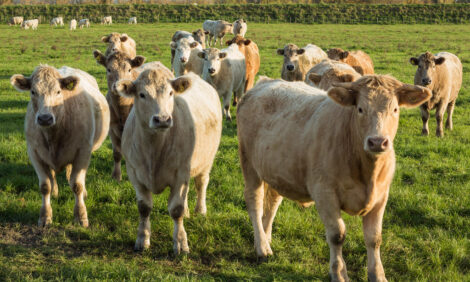



Aussie Beef with Environmental Claims
AUSTRALIA - Queensland beef producers are increasingly frustrated at the use of misleading marketing claims about the environmental credentials of a number of competing food types.AgForce Cattle board member and central Queensland beef producer Justin MacDonnell said
many of the claims are not relevant to Australia or are based on dubious science and AgForce is
therefore urging the red meat marketing group, Meat and Livestock Australia (MLA), to redress
these misconceptions for consumers.
“Queensland cattle producers are annoyed that the environmental credentials of our beef are
being wrongly criticised,” Mr MacDonnell said.
* "Anyone with any understanding of the Queensland cattle industry knows there is no more sound, logical and sustainable use of our extensive grasslands than to grow and finish beef cattle." |
Justin MacDonnell
|
“The latest dubious claim to come to our attention is a report from the United Kingdom promoted
by Australian chicken producers which said conventionally produced chicken is the most
environmentally efficient meat. In our view, that is patently incorrect in an Australian context.
“This report follows a string of recent media articles which have wrongly suggested red meat
production has a negative impact on the environment and that one of the ways for consumers to
reduce their carbon footprint is to avoid red meat consumption.
“Anyone with any understanding of the Queensland cattle industry knows there is no more sound,
logical and sustainable use of our extensive grasslands than to grow and finish beef cattle.
“More than 97 per cent of Australia’s 27 million cattle are currently being raised on natural
extensive pasture production systems. About 11 million of those cattle are in Queensland and
underpin a $3.7 billion industry. Queensland’s industry is based on grass-fed beef raised in a
natural production system.
“As consumers become more educated about the supply chain for all kinds of food, any claims
about environmental benefits will come under increasing scrutiny and need to be based on sound
and relevant scientific evidence.”
Consumer group Choice recently said there has been an explosion of green claims on product
labels that are either not supported by evidence, poorly explained or irrelevant – leaving shoppers
worried and confused by meaningless green logos and waffle.
The Australian Competition and Consumer Commission is investigating so-called ‘green-washing’
of consumer goods, with Chairman Graeme Samuel reportedly saying that green claims are
exactly like any other claim “if they are excessive, if they over-reach in terms of overselling and
under delivering, then they run the risk of breaching the misleading and deceptive conduct
provisions of the Trade Practices Act”.
AgForce Cattle is currently working with MLA to ensure that the extensive beef industry puts in
place robust systems which match consumer demands for meat that is nutritious, safe and
ethically produced, with the welfare of stock demonstrated and the environmental sustainability of
the system confirmed.
“We want to develop a third-party auditable standard which demonstrates that animals have been
raised in a sustainable system which maximises health benefits, minimises environmental impacts
and will be robustly certified as pasture-fed natural beef,” Mr MacDonnell said.
“With significant domestic marketing, we believe this natural beef can meet modern consumer
demands without any questions of integrity. Consumers can then have absolute faith in the
production of pasture fed beef in Queensland and other states of Australia.”
TheCattleSite News Desk


